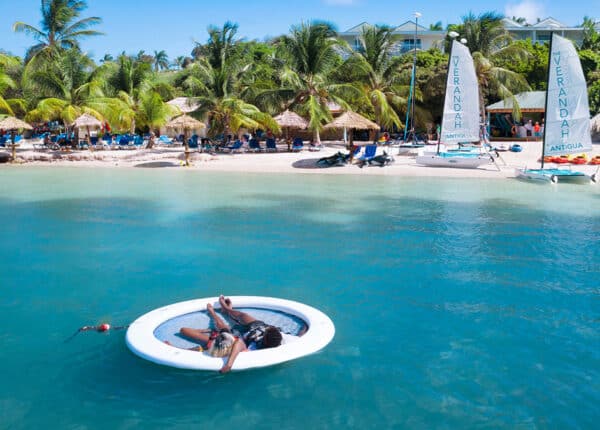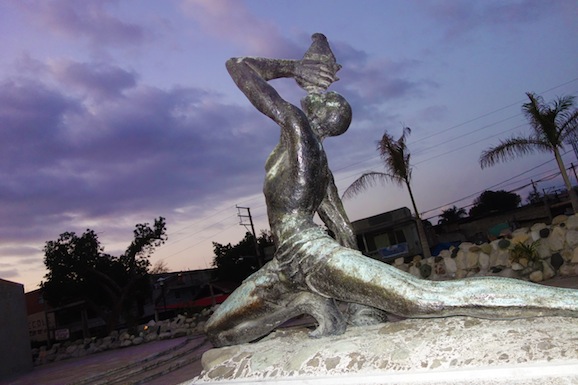By Ilio Durandis
CJ Contributor
AFTER THE earthquake in Haiti in 2010, former US president Bill Clinton championed the term “build back better” to emphasize that the post-earthquake Haiti should be better than the one that Haitians experienced before.
Haiti was probably the most unstable country in the region during the 20 years post-dictatorship (1986-2006).
Within that span, the country witnessed the massacre of civilians trying to vote (1987), two military coups d’état (1988 and 1991), one forced resignation of an elected president (2004), and two foreign interventions via the United Nations to restore democracy or maintained stability (1994 and 2004).
This great instability has created an atmosphere where the rule of law could not flourish and rendered state institutions in permanent dysfunction.
Democracy is impossible when the laws cannot be supreme.
On March 20, 1987, the Haitian people voted a constitution which they believed could help propel them into an era of democracy.
The hope was that, if the laws were applied fairly and respected by all, there could be a chance for every Haitian to prosper together.
Unfortunately, the constitution has never been fully implemented, which led instead of having a nation of laws.
Haiti became a nation of partisan rule, authoritarian consensus, and political bad deals.
This situation has made Haiti among the most corrupt nations on the planet.
And when corruption is king, development suffers.
Now, as we approach a new year, one that will mark the 100th anniversary of the first foreign occupation of Haiti, the outlook is murky.
The project to “build back better” is definitely on hold.
Haiti is once again marred in constant street protests, where part of the population sought resignation and departure of the current government, which they received this weekend.
But there is one mind-bending question that must be on everyone’s lips: How is it that Haitians always seem to want to overthrow their government and start over?
To understand this seemingly constant phenomenon of crisis in a country like Haiti, one must grasp an understanding of the factors that cause it.
My understanding based on history, experience and observation, led me to hypothesize that four things are at the core of this regressive formula: money, power, politics and the disregard of the law.
For a country to be governed well, it needs the majority of its leaders to have good qualities, ethics, and a sense of respect for the law.
As Haiti tried to adapt to the norm of democracy in the wake of a brutal dictatorship, something crucial was lost in the transition: The supremacy of the law.
Since the adoption of the constitution, each government has tried to manipulate it to maintain their grasp on power; to each, a different personal interpretation of the constitution.
The blatant violation of Haitian laws and a regular disregard for transparency has led to a situation where democracy can only be suffocated.
The current crisis is not a personal one or that of ideologies; rather it is a clear manifestation of corruption, the weakness of the state’s institutions, and politicians ‘ apparent determination for one-rule.
In order for Haiti to progress, it must break with this tradition.
The opacity in government has made it too easy for public funds to be used at the detriment of the public.
The greed of certain public servants has made it too easy for them to converge around special interests or become subservient to those who suppose to be under their rule.
The Haitian politicians are always strategizing their way to govern alone or with their close allies.
It is the politics of “no alternative ideas,” and one that relies on acceptance by faith, as if those holding power are some kind of god. There is no room for dissent, or for questioning authorities.
The free press, nowadays, is not under physical attack, but it has become under the influence of those with power.
Few in the media dare to investigate or ask important question to Haitian authorities.
Information and access to it has become a luxury and has to be decoded as if it is a verse in the book of Parables.
In a country where rumors hold more truth than the truth itself, it is a bad sign for democracy, development, and social justice.
The Haitian people may not be the most school-educated people on this planet, but time after time, even timidly, have found ways to let their leaders know that they are not happy with the state of affairs.
Yes, at times, they are misled and manipulated by opportunists who have no desire to break with the unending cycle of poverty, injustice, and corruption.
Chaos is not a solution in itself, nor is the status quo.
But one thing is for certain, the Haitian people will not stand for the status quo regardless of who is in power.
In 1986, the message was clear.
The Haitian people would not tolerate another dictatorship or a self-appointed autocrat.
The people will always stand for their freedom, even if that will cost them a plate of rice. The Haitian people have inherited this trait to fight for freedom from their ancestors.
Despite more than two centuries of slavery, torture, and oppression, the founders of the nation had never wavered for their will to be free. And this struggle for freedom and self-determination will never end, not until it becomes reality.
The roadmap for this current crisis and future one is directly link with that desire for freedom.
Haitians understand there is no freedom when only a few get to enjoy the beauty of the landscape.
They fully get it that progress is not made on paper, by traveling abroad or attending big international summits, but rather it is when the collective can improve their living conditions together.
The window of opportunity is only closing on the opportunists, but the Haitian people as always will triumph.
There is not enough money to corrupt all the people, and power is always ephemeral.
The only permanent solution to the crisis is the respect of the Haitian constitution.
Ilio Durandis, a Caribbean Journal contributor, is the founder of Haiti 2015, a social movement for a just and prosperous Haiti. He is also a columnist with The Haitian Times.








